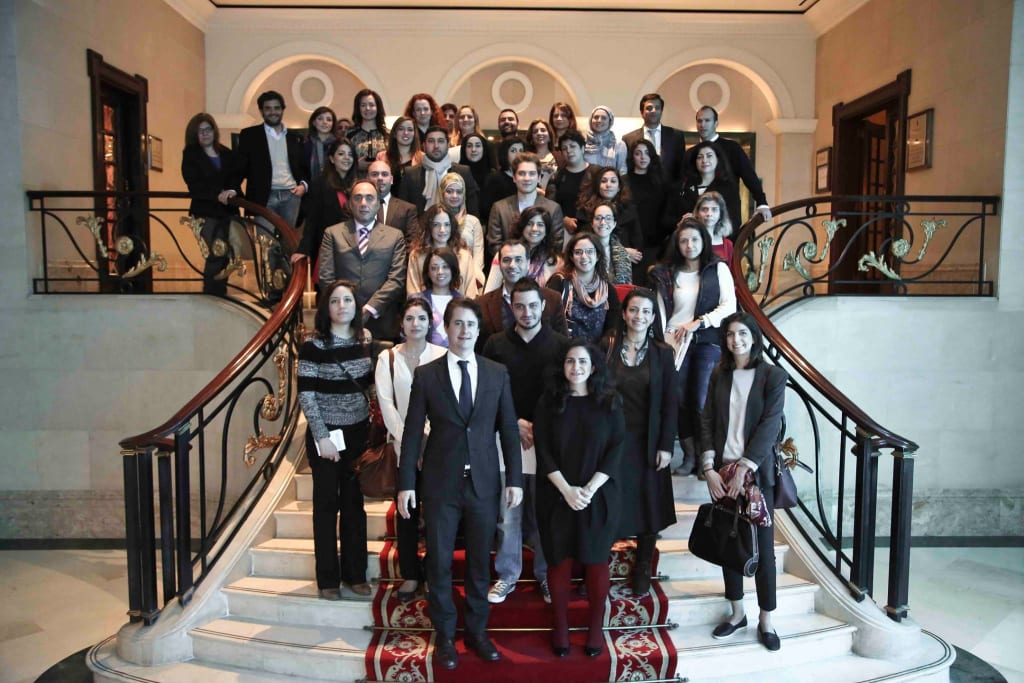Arab Women entrepreneurs on the rise: Follow the money
Women entrepreneurs in MENA are changing the status quo and unlocking value for all

As I started working on women entrepreneurship in 2011, I was fortunate to work with formidable Arab women entrepreneurs across the Middle East and North Africa (MENA). It was thanks to these women who met between Saudi Arabia, Abu Dhabi, Lebanon, Djibouti, and Egypt that I was able to bring different partners together and launch the first MENA women entrepreneur investment program. I did that as the World Bank resilience regional coordinator. The program was challenged in Washington as it moved away from the traditional analytical and lending operational work that the World Bank promoted. However, by 2014 it had become a multi-million-dollar women focused investment program and an institutional example of how Public Private Partnership (PPP) can empower women entrepreneurs, create jobs, and economic resilience.
The shift of power
Women leaders are emerging globally as force multipliers across countries and sectors. Women inclusive businesses are outperforming the markets, creating new business models, and embracing sustainability to unlock new shareholder and societal value. MENA is one of the regions where driven women are taking massive risks to transform their economies. These changes are particularly evident in Jordan, Lebanon, Egypt, the UAE, Qatar, when public sector reforms have been promoted for decades as this is part of their economic and societal transformation. Saudi Arabia’s women are also charting ahead, with more women in leadership positions across capital markets, politics, and entrepreneurship. This is backed by Crown Prince Mohammed bin Salman (MBS) Vision 2030 aiming to diversify the Kingdom’s economy away from oil and gas.
Where are we now?
Studies show that investing in women entrepreneurs pays off both societally and financially. When women have access to financing, their enterprises tend to outperform the markets. In some MENA countries like Lebanon, Jordan and Egypt, the International Financial Corporation (the private sector branch of the World Bank) has partnered with local Banks and VC to design financial services and banking products for smaller enterprises. As a result, in Lebanon, the number of loans to women-owned small and medium enterprises increased by 55 percent. Bank’s business saving accounts also increased by 17 percent. The UAE is perhaps the most striking example of how women are leading businesses across sectors across the MENA region (more on this below).
Arab women still facing major barriers:
According to the United Nations, while massive improvement has happened for MENA’s women, they continue to underperform other regions. The entrepreneurial disparity between men and women continues to be high. At the end of 2022, there were less than 5% of women-led business (compared to a global average of 23% to 26%) and one of the weakest female labor participation rates. The main barrier for MENA women entrepreneurs is access to capital as there continue to be biases as well as lack of regional venture funds with appetite to invest in women led companies. According to the World Bank, female entrepreneurs are about twice as likely to have their loan applications rejected as males. To some extent this is due to an overwhelming majority of banking senior positions being controlled by men.
According to Wamda and TiE Dubai (two regional accelerators and venture builders) about $48 million was invested in female-led start-ups in the Middle East in the first nine months of 2022. This is about 2 percent of the total $2.4 billion start-up investment that happened in the region at that time. Female and male co-founders’ teams did better getting 15.6% of total venture funds in 2022. The fund-raising underperformance of women led companies was similar internationally in 2021, with women funded companies raising only 2% of the $6.4 billion invested by venture funds. The financing gap is particularly marked in early-stage companies. This disparity exists even though ventures that are women inclusive perform better over time, generating 10% higher cumulative revenue over a five-year period.
The UAE Women Are Setting a Global Example
A striking outlier has been the United Arab Emirates (UAE). The UAE has achieved the highest level of gender parity in the Arab World. It has done so by requiring all listed companies to appoint at least one woman to sit on their boards, as well ensuring that 50 percent of the parliament is led by women. Another, was the appointment of Sarah Al Amiri, Minister of State for Public Education and Future Technology, as the Chair of the UAE Space Agenda. Her team is 80% women. Pay discrimination are also illegal in the UAE.
Additionally, according to the Davos Economic Forum, UAE Female entrepreneurs surged 68% as Covid shut down most of the world economy. The key sectors where women led to profitability were education, wellness & fitness, and healthcare. Great impetus is also observed across the sustainability and clean-tech space, particularly now that the UAE is hosting COP28 at the end of 2023. Finally, the UAE outperformed the global average with 43 per cent of women founding businesses. This is mostly due to good government public policy reforms that promote equality in the workplace, access to finance, and ESG.
Final Thought
According to research from Boston Consulting Group (BCG) if women and men participated equally as entrepreneurs, global gross domestic product (GDP) could rise by 3-6 per cent, boosting the global economy by $2.5 trillion to $5 trillion.
Women’s entrepreneurship will change the world and the benefits will go far beyond quarterly financial results and global GDP growth. By 2030 the gender gap will not have been closed across the MENA region, but millions of Arab women will be managing billions of financial assets, and corporate boards that will boost the region's competitiveness creating greater innovation and clean tech jobs.
About the Creator
Andrea Zanon
Andrea Zanon is an international sustainable development and empowerment specialist who has dedicated his life to reducing poverty, promoting sustainability and empowering ambitious people






Comments (1)
Women’s entrepreneurship will change the world and the benefits will go far beyond quarterly financial results and global GDP growth. By 2030 the gender gap will not have been closed across the MENA region, but millions of Arab women will be managing billions of financial assets, and corporate boards that will boost the region's competitiveness creating greater innovation and clean tech jobs.